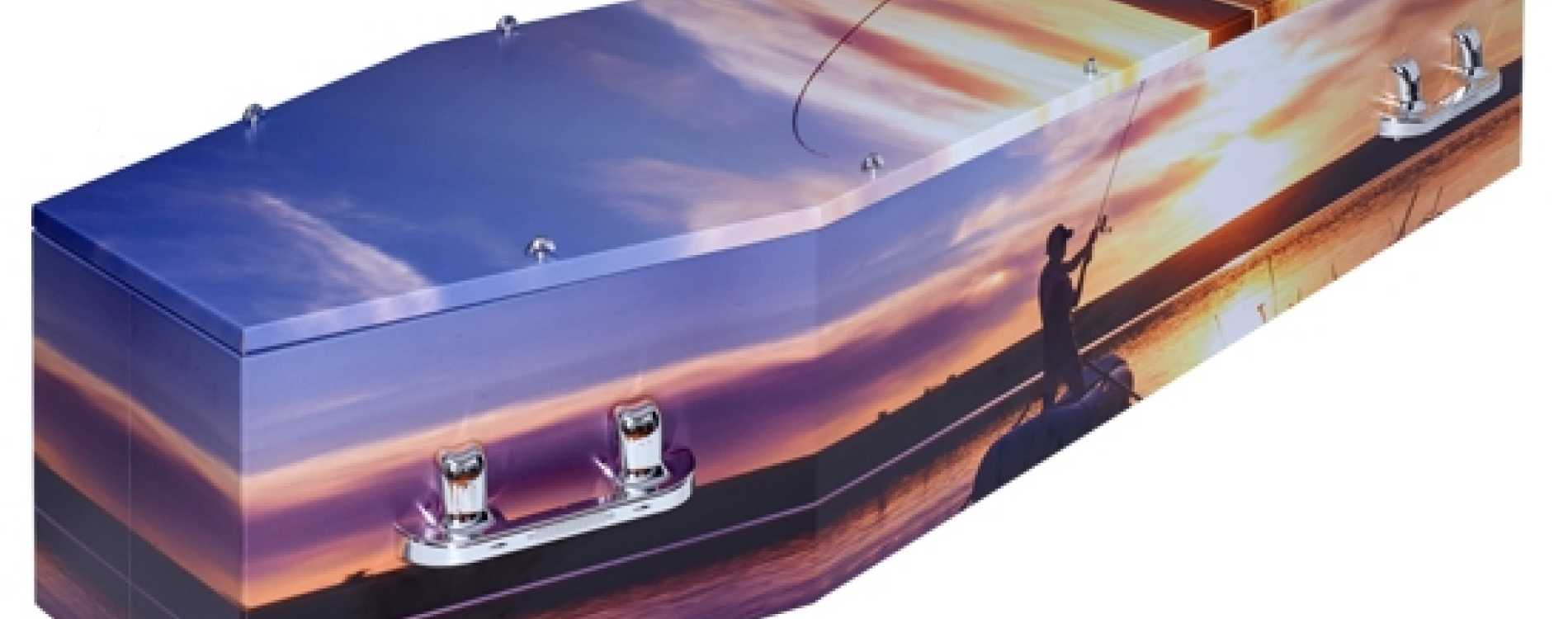The print market has become adept at managing change and embracing new technology and markets for a number of years. Now environmentally friendly, cardboard coffin producer, LifeArt is taking printing to another level.
Around 600,000 coffins are made for the UK market each year and of these around 85% are used for cremation services. Most coffins today are made from particle board or MDF. Working with MDF and Particle board creates an unhealthy, potentially carcinogenic, dust in production and leads to waste which cannot be recycled, so offcuts largely end up in landfill or used as biomass fuel. These outdated coffins were designed for burial, not cremation. When cremated, these heavy coffins emit large amounts of Nitrous Oxide, a potent Green House gas which destroys ozone and impacts global warming.
Global business, LifeArt has considered the total life cycle of the coffin in its development of the first truly personalised and affordable cremation coffin, that will only reduce in price as its volume increases. The coffin has been engineered to surpass all weight bearing standards, it’s handles, unlike MDF or Particle Board coffins, are weight bearing and it’s a great light weight alternative, making it much easier to carry.
LifeArt was founded in Australia, where the idea for their unique product began in 2004. They have created, developed and patented an enviroboard coffin using ingenious cardboard engineering. Independent Research supports their claim that their coffins use up to 80% fewer trees to produce and when cremated emit up to 87% less Nitrous Oxide than MDF or Particleboard coffins. In 2017 they opened a global innovation centre in Gloucester, to produce their environmentally friendly products for the UK market and are now on a UK and global expansion path.
Their enviroboard coffins are printed directly onto the board that envelopes the cardboard engineered coffin. This board acts as a template, that allows the families to have any graphic of their choice printed in high quality onto the coffin.
“The vast majority of coffins we sell today are printed for the funeral trade, so we offer a choice of timber print finishes. But the exciting bit is being able to totally personalise a coffin for the user and offer it at an affordable price. With so many more people planning their own funerals there’s lot of interest in being able to choose a unique finish.”
LifeArt is without doubt a big disrupter in a market where the majority of coffins are made by cabinet makers. But they are certain that this environmentally friendly alternative, that’s strong, robust and passes all testing, will be the future of coffin production and that Printers could become an integral part of the coffin industry of the future.
Simon Rothwell, UK MD for LifeArt explains: “We have already set up partnerships with print groups in Europe and are looking for print groups to partner in the UK. They have all the skills needed to produce our cardboard coffins and many will have the equipment too. Essentially LifeArt provide their supply chain, technology and market access and the print partner would print, cut, wrap, glue and assemble the coffin for local supply. That’s the future, we don’t want to be transporting empty boxes. The environment is core to everything we do, so it needs local supply. We are seeking print groups with the right skillset, mindset and capacity.”
Mike concludes that there are no globally branded coffins in the market today and he is committed to make LifeArt the coffin brand that everyone will know and trust in the future.


